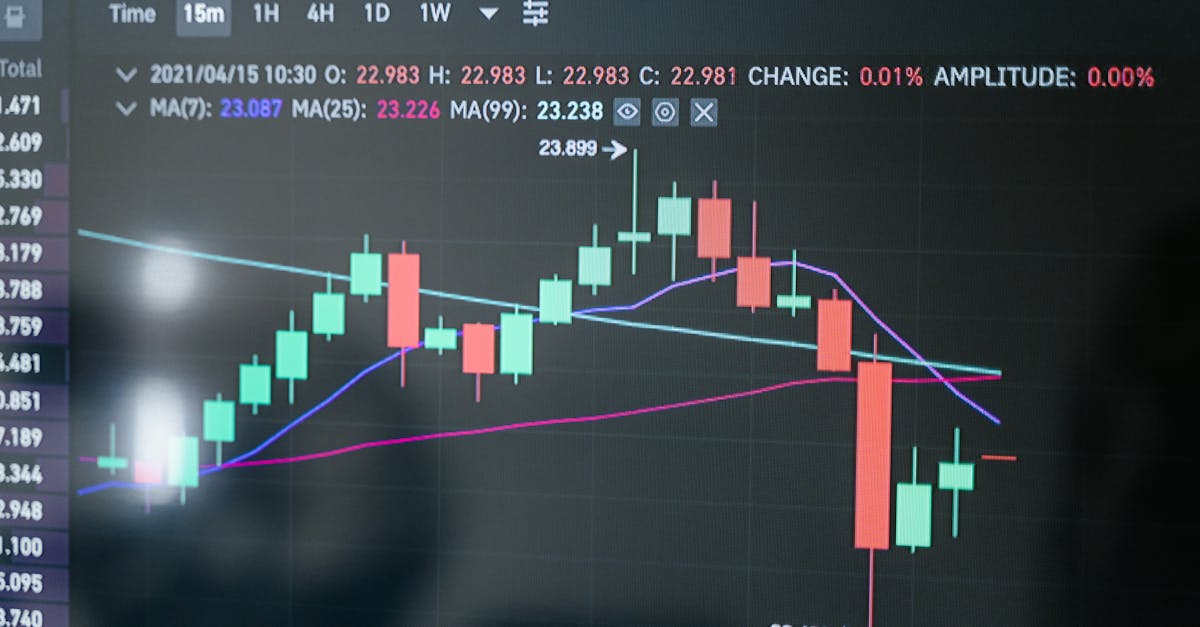Savvy Financial Trends for 2029
Introduction
The global financial landscape is constantly evolving, with 2029 expected to usher in transformative trends and innovations. From cutting-edge technologies to shifting economic paradigms, these changes promise to redefine how businesses operate and consumers engage with the economy. Understanding these trends is crucial for investors, financial professionals, and everyday citizens looking to make informed decisions. So, what are these emergent trends, and how will they shape the future? In this article, we will delve into the key financial developments anticipated for 2029. Let's explore how these innovations can open new opportunities and challenges alike.
Advertisement
The Rise of Digital Currencies
By 2029, digital currencies will likely have cemented their place in global commerce. Central bank digital currencies (CBDCs) are expected to gain traction as governments seek to modernize monetary systems. Unlike decentralized cryptocurrencies like Bitcoin, CBDCs offer stability and regulatory oversight attractive to mainstream consumers and businesses. Countries such as China and Sweden have already begun deploying pilot programs, setting the stage for broader adoption. With digital currencies reducing transaction costs and enhancing transparency, they may become indispensable to global finance. However, concerns about privacy and cybersecurity will remain critical issues to address.
Advertisement
Financial Technology Revolution
The fintech sector will continue its rapid expansion, introducing disruptive technologies that automate and optimize financial services. Artificial Intelligence (AI) and machine learning will play pivotal roles in enhancing customer experiences. Robo-advisors will offer personalized investment strategies, while AI-driven algorithms detect fraud with unprecedented accuracy. Additionally, blockchain technology will streamline operations, enabling smart contracts and decentralized applications (DApps) to flourish. For consumers, these innovations promise convenience and efficiency; for businesses, they present opportunities for significant cost reduction and innovation.
Advertisement
Sustainable and Ethical Investing
With climate change and ethical concerns at the forefront, sustainable investing will gain paramount importance. Environmental, Social, and Governance (ESG) criteria will dominate investment portfolios as investors prioritize companies with sustainable practices. Renewable energy projects, carbon-neutral initiatives, and socially responsible businesses will attract substantial capital. By 2029, ESG integration in financial analysis will likely be the norm, driving corporate transparency and accountability. This trend not only offers ecological benefits but also potentially higher returns as conscious consumers increasingly support ethical brands.
Advertisement
The Evolution of Gig Economy
The gig economy is set to evolve further, with freelancers and contractors constituting a significant portion of the global workforce. By 2029, platforms facilitating flexible work arrangements will be more sophisticated, offering enhanced benefits and worker protections. Governments will face the challenge of adapting labor laws to balance flexibility with security. Innovations in payment systems and digital tools will support seamless transactions for gig workers, providing the necessary infrastructure for financial management. As businesses increasingly rely on freelance talent, this sector will continue to thrive despite potential regulatory hurdles.
Advertisement
Traditional Banking's Adaptive Shift
Traditional banks will undergo a metamorphosis, adapting to consumer demands for technological integration and personalized services. By 2029, the line between fintech companies and banks will blur, as collaborations increase. Digital banking services, once optional, will become essential, offering 24/7 accessibility and a plethora of personalized products. Brick-and-mortar branches will pivot towards advisory and complex financial service hubs. Tech-savvy banks leveraging AI and big data analytics will stay ahead, capturing the loyalty of a tech-driven clientele. Yet, they must address cybersecurity threats that accompany digital advancements.
Advertisement
Wealth Management Technology
Advancements in technology will reshape wealth management, catering to a diverse and savvy clientele. By 2029, virtual financial consultations will be standard, with advisors using augmented reality (AR) and virtual reality (VR) to offer dynamic, immersive experiences. AI-powered tools will facilitate real-time analysis, guiding clients through intricate wealth-building strategies. The democratization of investment opportunities will welcome tech-savvy millennials and emerging markets into the wealth management fold. Advisors will need to pivot from traditional roles, embracing digital transformation to maintain their competitive edge.
Advertisement
Real Estate and Property Technology
The real estate sector will embrace property technology (proptech), changing how properties are bought, sold, and managed. Blockchain will minimize fraudulent activities, providing transparent and secure transactions on digital platforms. Virtual tours and AR tools will revolutionize property viewing, enabling remote purchasing. Urbanization trends will spur demand for smart cities, utilizing IoT devices for operational efficiency. As the rental economy thrives, digital platforms will streamline tenant experiences, ensuring seamless lease management. The continued integration of proptech will redefine global real estate markets, driving future growth.
Advertisement
Economic Impacts of AI and Automation
AI and robotics will profoundly impact employment and economic structures by 2029. Automation will streamline manufacturing and service industries, leading to increased productivity and cost efficiency. While some jobs may become obsolete, new roles will emerge in technology development, maintenance, and oversight. As economies adapt, there will be a concerted focus on reskilling and upskilling the workforce, ensuring societal readiness for an AI-driven future. Policymakers will need to ensure balanced growth, minimizing disparities and safeguarding employment opportunities against widespread automation.
Advertisement
Conclusion
As we peer into the financial horizon of 2029, it's clear that innovation and adaptability will be crucial in navigating these transformative trends. Digital currencies, fintech, and sustainable investing will reshape how we engage with the economy, offering exciting opportunities and challenges. The gig economy and banking sectors will evolve, while wealth management and real estate embrace technology. The pervasive influence of AI and automation will redefine economic structures, necessitating proactive planning in education and governance. Embracing these savvy trends will be key to thriving in this dynamic financial future. Together, these advancements promise a landscape rich in opportunity, reshaping the global economy and providing avenues for sustainable growth.
Advertisement








